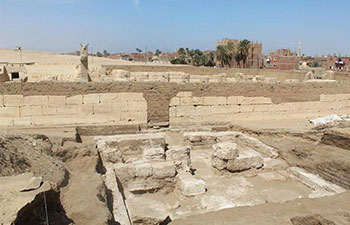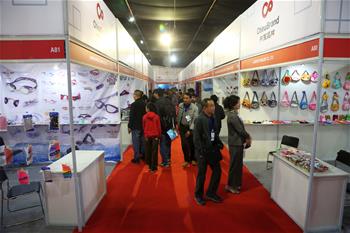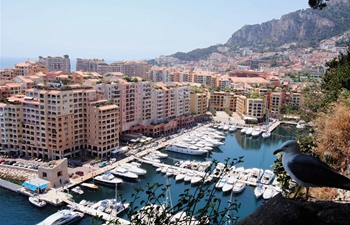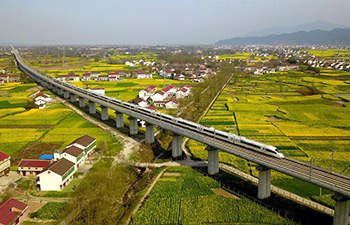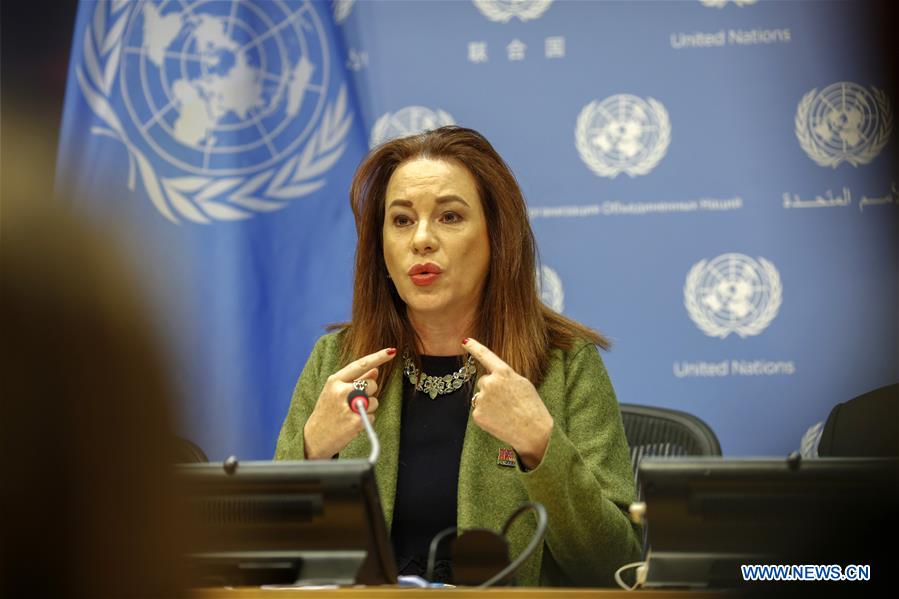 ?
?United Nations General Assembly (UNGA) President Maria Fernanda Espinosa Garces speaks at the news conference for the launch of an annual report of the World Meteorological Organization (WMO), at the UN headquarters in New York, on March 28, 2019. The WMO Statement on the State of the Global Climate 2018 states that 2018 was the fourth warmest year on record and that 2015-2018 were the four warmest years on record. (Xinhua/Li Muzi)
UNITED NATIONS, March 28 (Xinhua) -- United Nations General Assembly (UNGA) President Maria Fernanda Espinosa Garces warned Thursday that the world is caught "in a truly critical situation" while speaking about climate change.
"We are in a truly critical situation. Eleven years is all we have ahead of us to change our direction," the UNGA president told the High-level Meeting on Climate and Sustainable Development for All, which was held at the UN headquarters in New York.
"The last report of the Intergovernmental Panel on Climate Change (IPCC) has raised the alarm and prevents us from claiming ignorance about the situation we are facing," she noted.
"Phenomena like Cyclone Idai, which has devastated Mozambique, Malawi and Zimbabwe, with hundreds of people dead and millions of people affected, are tragedies that alert us about what we can and must prevent," said the UNGA president.
Noting that "we are the last generation" that can prevent "irreparable damages" to the planet and to its inhabitants, Espinosa sounded the trumpets: "There is no planet B;" "The time to save our planet is now;" "Not one degree more, not one species less;" "There is no future without our planet."
"Not hearing them would be a mistake, as to think that we still have much time ahead," she warned.
It's estimated that human activity has already caused an approximate 1-degree Celsius temperature increase since the "pre-industrial" reference period -- the average global surface temperature between 1850-1900.
According to the 2018 IPCC report, another 0.5 degree of warming is likely to occur between 2030 and 2052, if the rate of climate change stays the same as it is today. "That gives us a roughly 11-year window to get serious about reconfiguring, firstly, our response to the inevitability of climate change, and, secondly, our continued contributions to warming climates -- or else we face irreversible damage."
Espinosa chaired Thursday's meeting, which was participated by UN Secretary-General Antonio Guterres, executive secretary of the UN Framework Convention on Climate Change Patricia Espinosa, and some heads of government and state.
The objectives of the high-level meeting include highlighting the interlinkages between climate and economic, social and environmental dimensions of sustainable development for present and future generations including the synergies between the climate agenda and the 2030 Agenda for Sustainable Development.





